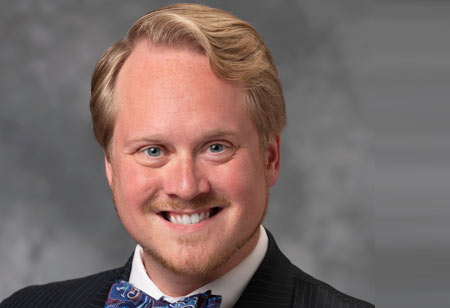Thank you for Subscribing to Healthcare Business Review Weekly Brief

Navigating Healthcare Compliance
Healthcare Business Review
Aaron Sohaski JD, MBA has over ten years business experience with seven years’ experience focused on healthcare business, compliance, contracting, legal, and regulatory matters.
Working at companies ranging from mid-sized not for profits to large-scale corporate entities, he has developed streamlined business processes, and negotiated and drafted contracts with external and internal stakeholders. He has also created systemic compliance protocols for multi-million dollar agreements.
Following is the conversation that we had with Aaron.
Can you please provide an overview of your role as the Director of Compliance at Henry Ford Health?
As the Director of Compliance at Henry Ford Health, my role is to ensure that our organization operates in compliance with all applicable laws, regulations, and standards in the healthcare industry. I oversee the development, implementation, and maintenance of compliance programs and policies through two of our business entities: the Henry Ford Physician Network (an integrated network of providers) and Mosaic Accountable Care organization (focused on delivering value based care to our Medicare Fee-for-Service beneficiaries).
What are the main compliance challenges that healthcare organizations face today?
One of the main compliance challenges that healthcare organizations face today is the ever-changing regulatory landscape. Healthcare regulations are complex and continuously evolving, requiring constant monitoring and updates to ensure compliance.
Additionally, the increasing use of technology and electronic health records poses challenges in safeguarding patient information and maintaining data privacy.
What are the potential consequences for non-compliance in the healthcare industry?
Non-compliance in the healthcare industry can have significant consequences. These can include financial penalties, loss of reputation, legal action, exclusion from government programs, and even criminal charges in cases of fraud or abuse.
The consequences can have a severe impact on the organization's finances, operations, and public trust.
In your experience, what are some of the best practices for effective compliance management in the healthcare industry?
Some of the best practices for effective compliance management in the healthcare industry include:
• Developing a robust compliance program: This involves establishing written policies and procedures, conducting regular risk assessments, and implementing a system for monitoring and auditing compliance activities.
• Providing comprehensive training and education: Healthcare organizations should invest in training programs to ensure that employees at all levels understand their compliance obligations and are equipped with the knowledge to carry out their roles in a compliant manner.
• Encouraging a culture of compliance: It is essential to foster a culture that values compliance and encourages employees to report potential issues or violations without fear of retaliation.
This can be achieved through effective communication, accountability, and a commitment to ethical behavior.
• Conducting internal audits and investigations: Regular internal audits and investigations help identify areas of non-compliance, mitigate risks, and address issues promptly. This ensures that corrective actions are taken and potential compliance gaps are resolved.
What advice would you give to other healthcare organizations looking to strengthen their compliance efforts and ensure regulatory adherence?
To strengthen compliance efforts and ensure regulatory adherence, I would advise other healthcare organizations to:
• Stay updated with regulatory changes: Monitor regulatory updates and industry trends to stay ahead of changes that may impact compliance obligations. This can involve engaging with industry associations, attending conferences, and actively seeking relevant information from regulatory agencies.
• Collaborate with stakeholders: Foster strong relationships with regulators, legal counsel, and other healthcare organizations to share best practices, exchange knowledge, and stay informed about emerging compliance issues.
• Implement technology solutions: Leverage technology to streamline compliance processes, such as automating compliance monitoring, reporting, and documentation. This can help improve efficiency and accuracy while reducing the risk of human error.
The future of compliance in the healthcare industry is likely to be influenced by technological advancements, increased data privacy concerns, and evolving regulations.
• Engage in continuous improvement: Regularly evaluate and assess the effectiveness of compliance programs and make necessary adjustments based on feedback, lessons learned, and industry developments. Compliance should be viewed as an ongoing process that adapts to changes and continuously improves.
How do you envision the future of compliance in the healthcare industry?
The future of compliance in the healthcare industry is likely to be influenced by technological advancements, increased data privacy concerns, and evolving regulations.
Automation and artificial intelligence can play a significant role in improving compliance monitoring, identifying potential risks, and streamlining reporting processes. Healthcare organizations will need to adapt to these changes, invest in training and resources, and remain agile in their approach to compliance management.
Collaboration between industry stakeholders and regulatory bodies will continue to be crucial in addressing emerging compliance challenges and establishing best practices.









